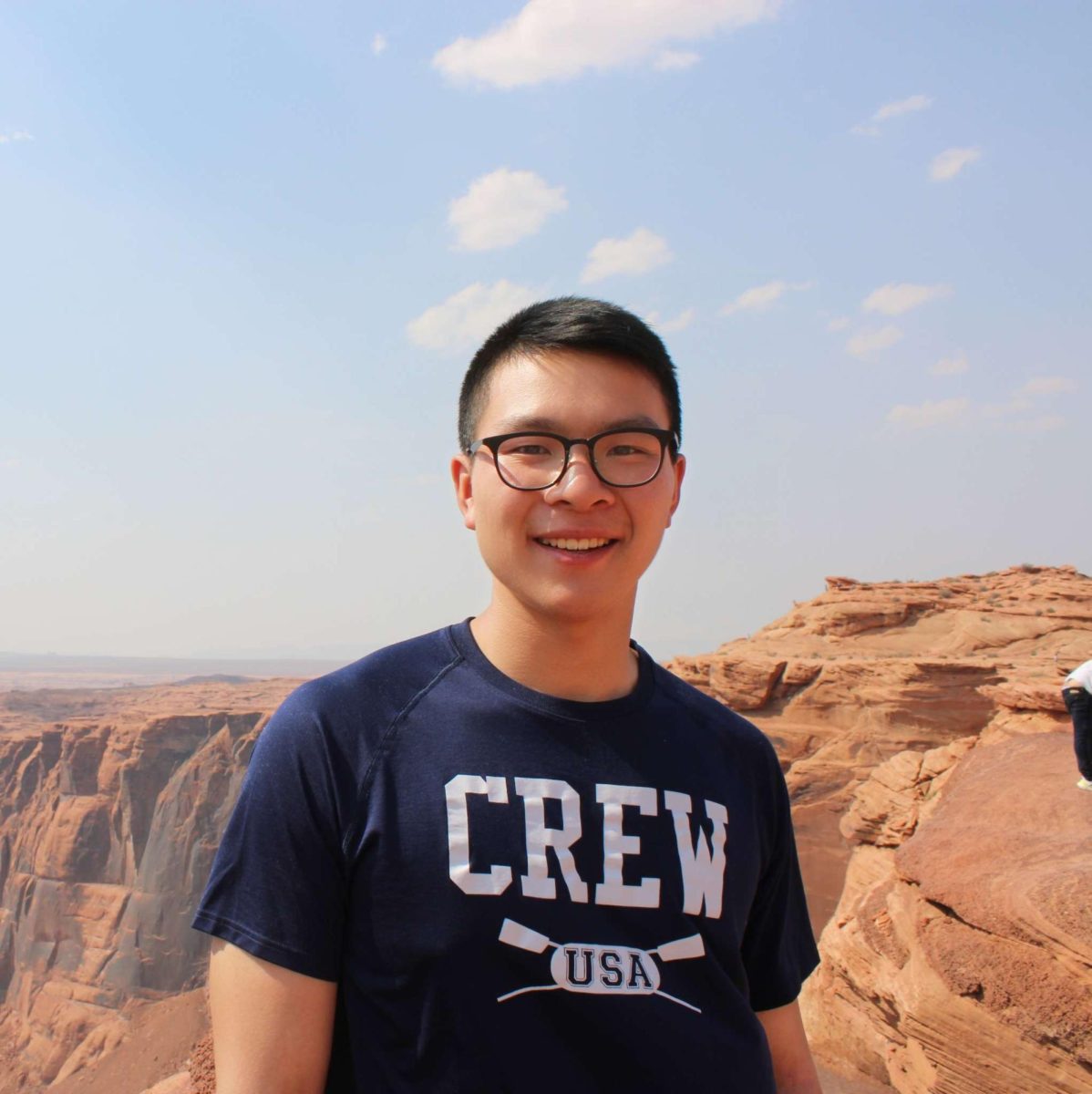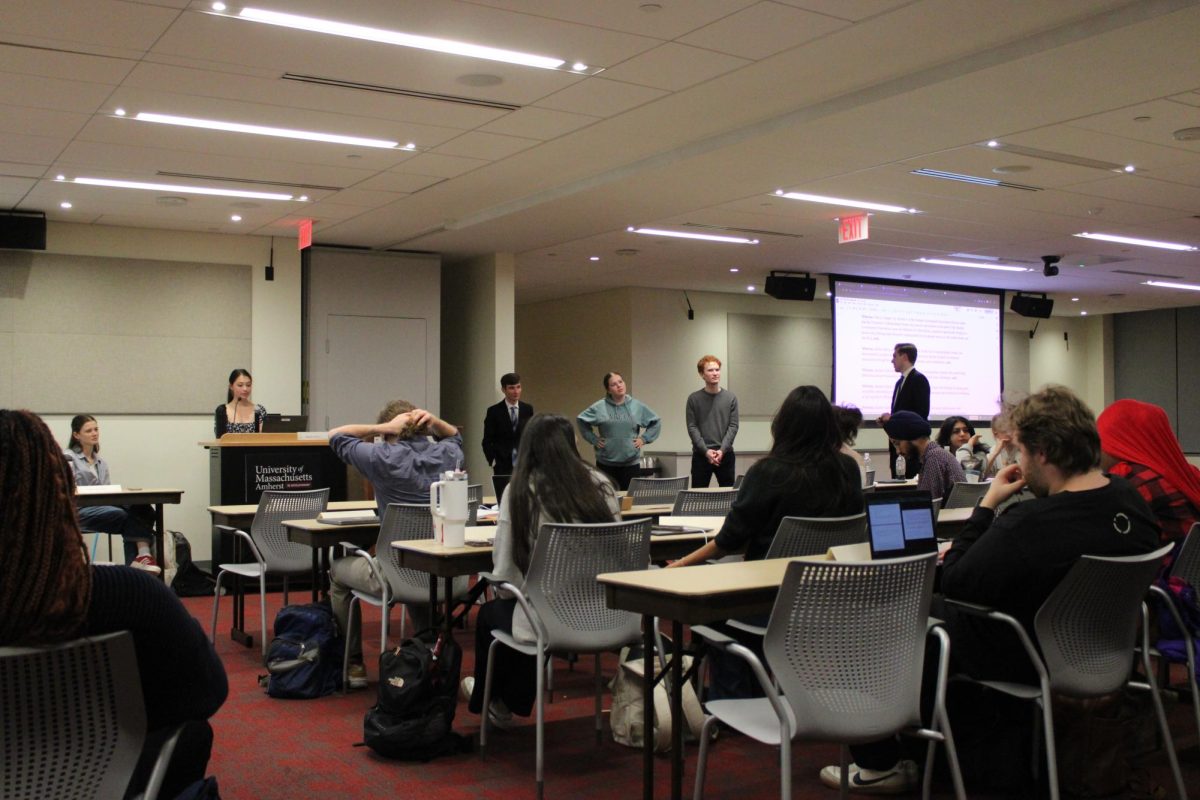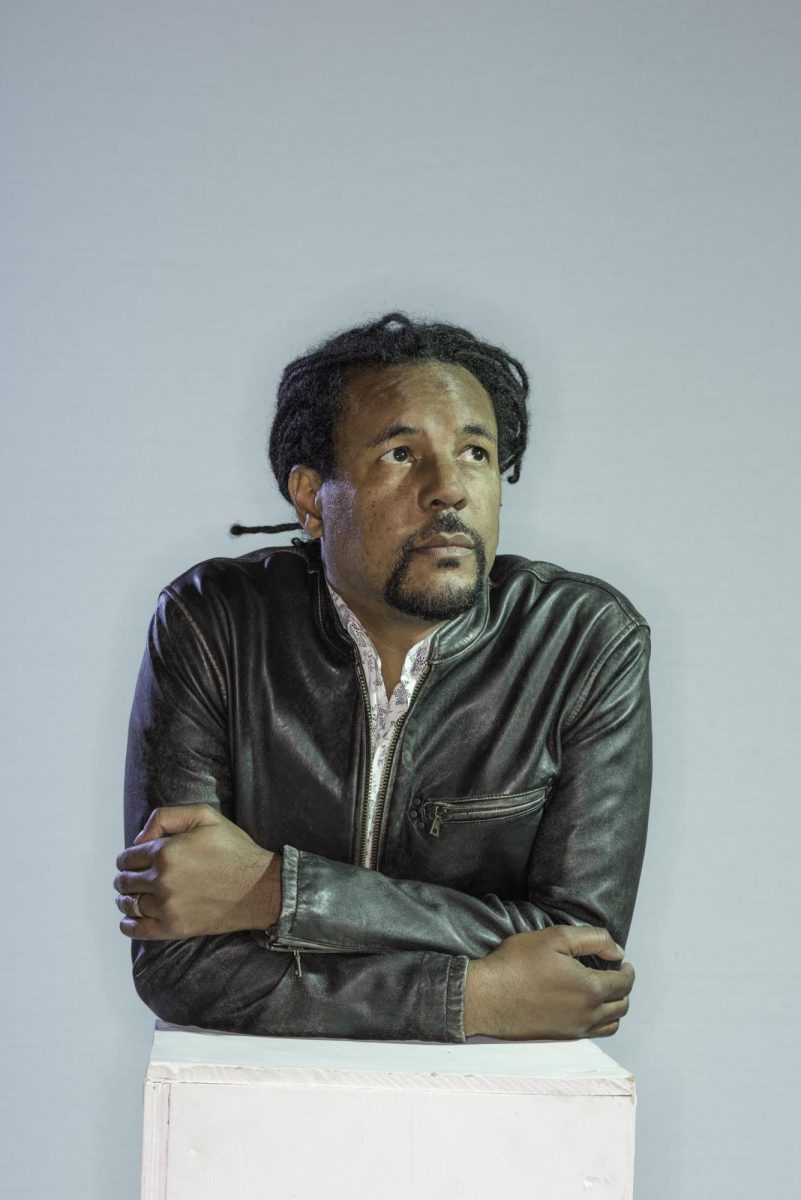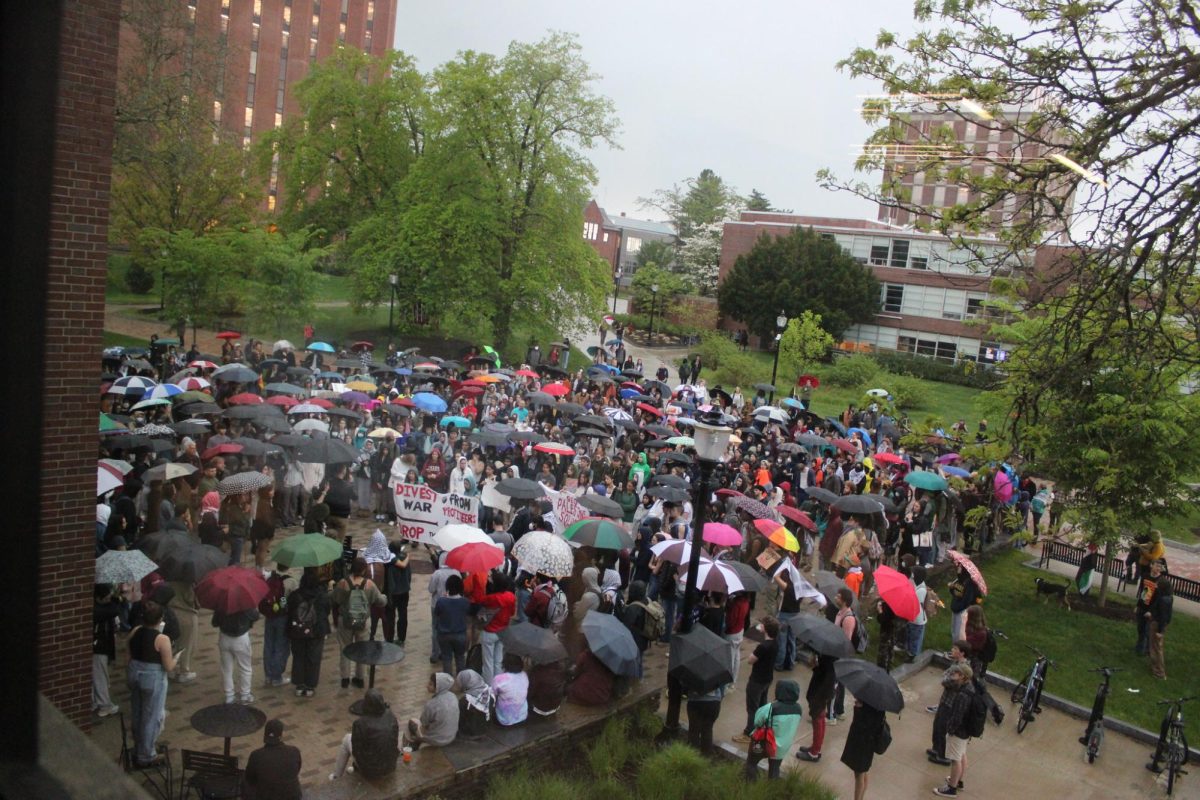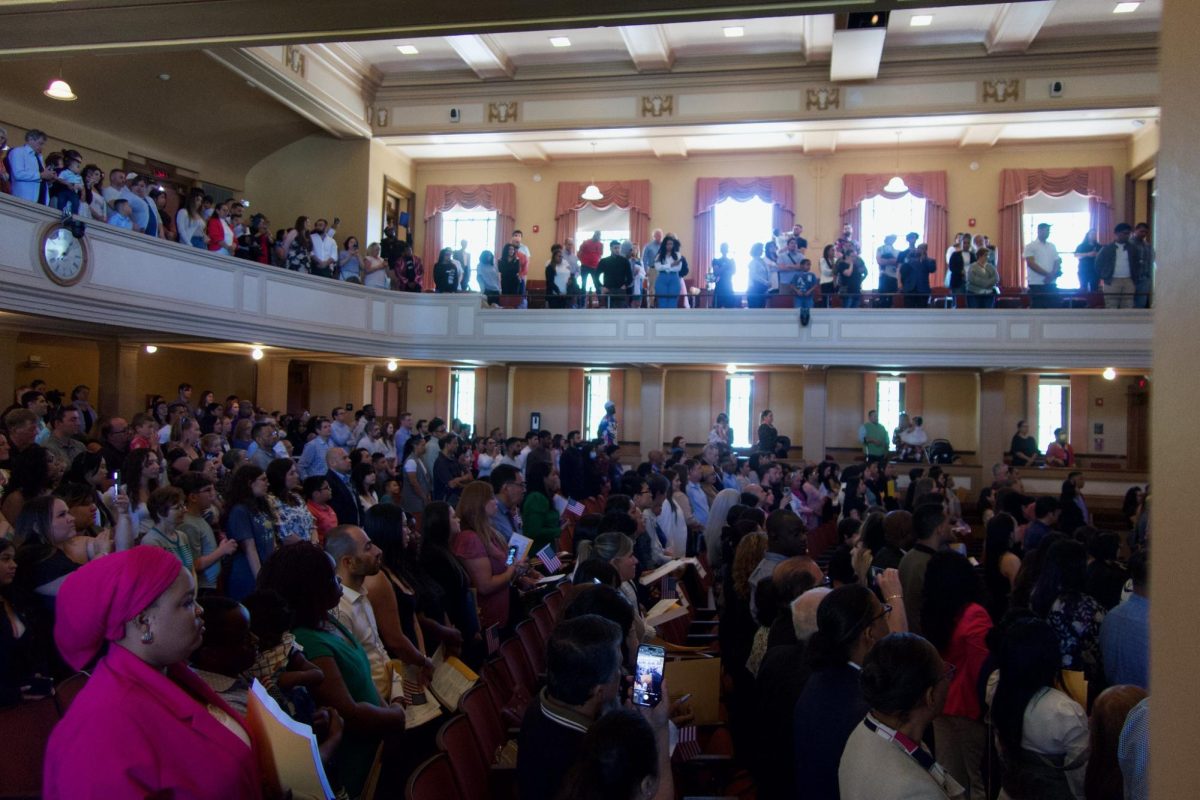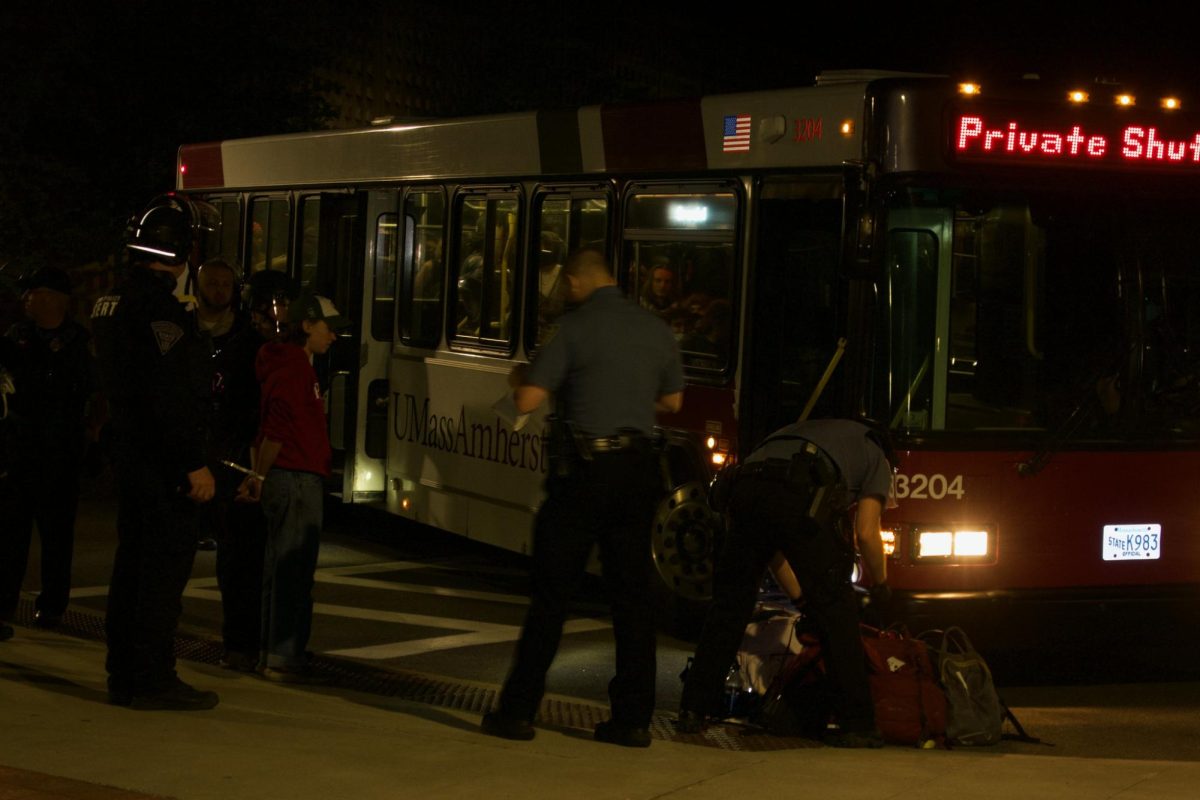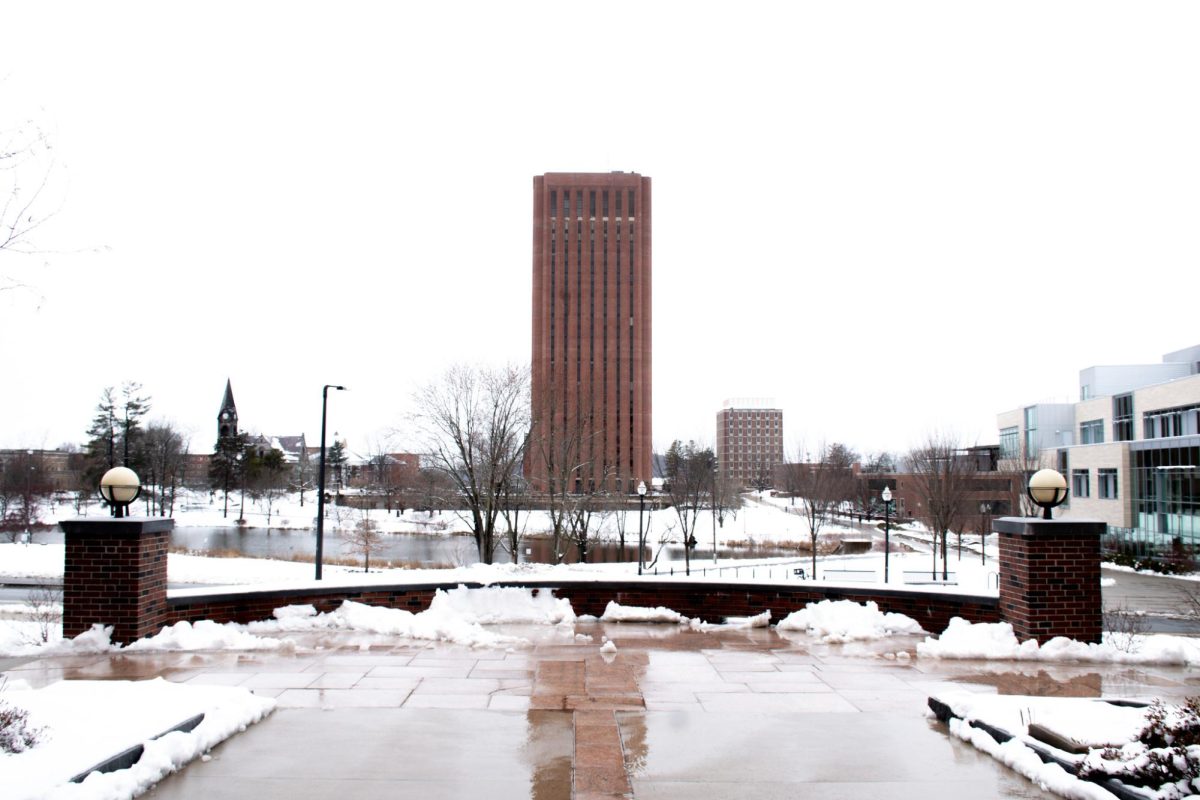
Can you save the planet with your diet? The Plant-Based Nutrition Club at the University of Massachusetts thinks so. The group educates the UMass community on the benefits of plant-based, vegan or vegetarian diets, and they feel good doing it.
“Normally what I tell people is I went vegan for the animals, found out I was saving the environment and felt a hell of a lot better,” said Nicole Henderson, a sophomore English major and current secretary of the club.
Still relatively new to campus, the Plant-Based Nutrition Club, or P-NUT, brings speakers to campus, screens documentaries and leaflets in the community to share information about the advantages of opting out of meat and dairy products for more vegetables and legumes.
“Plant-based foods provides you with a lot of good things like fiber, protein and healthy fats that animal based products don’t provide,” said Haley Harzynski, a nutrition major from the class of 2016 and founder of P-NUT.
Harzynski started the club her junior year at UMass in the hopes of joining like-minded students together to discuss the benefits and realities of being vegan, vegetarian or having a mostly plant-based diet. Harzynski has been vegan for six years and a vegetarian for 15 years.
“Planted-based nutrition and veganism is all about creativity, abundance and taking something that people don’t see and creating something from it,” Harzynski said.
Jordan Lake, a sophomore sustainable food and farming major and vice president of P-NUT this past fall semester, said plant-based nutrition is one of the easiest ways to be an activist.
“We make a decision of what we eat at least three times a day, and simply being mindful of our choices can have immense impact beyond oneself. What we eat impacts so much more than our bodies, and our society is so disconnected from this,” said Lake.
P-NUT works to inform the campus community on alternative, healthier and more sustainable diets in order to fight the stigma of living a vegan or plant-based lifestyle.
“I think there is a big stigma behind the word ‘vegan,’ which is why a lot of times we prefer plant-based because we are kind of a new generation of vegans, where some of the older people are ‘go vegan or get out’ kind of thing, whereas I feel this generation is a lot more inclusive,” said Henderson.
Reed Mangels, a nutrition professor at UMass and a registered dietitian, stopped eating meat in the 1970s and became vegan over 25 years ago. Mangels is the current faculty advisor of P-NUT.
As someone who has been involved with vegetarian groups in her own community, she said P-NUT is a great way for students to discuss their plant-based diets and to learn about various options available for the vegan lifestyle.
“I saw this as a really great forum where people could educate each other and be a support group,” she said.
Being vegan or vegetarian is not a requirement to join the group. The club welcomes students who are interested in the lifestyle or want to learn more about how to implement the diet into their everyday lives.
“We are not going to make an impact or reach different communities if we are only having people in the lifestyle, we need people who don’t know about it, who have friends who don’t know about it and that is how it spreads,” said Olivia Laughlin, a psychology and communication major and president of P-NUT.
By demonstrating to students what types of alternatives to dairy or meat products they can eat, all while educating them on not only the personal health benefits but environmental benefits as well, Laughlin said the club serves as role models for other students on campus.
“Just by making [veganism] look easy and normal and accessible, it makes it a lot more appealing,” she said.
The group holds the philosophy that being vegan is not a huge sacrifice.
“One of the biggest conceptions is that it is a sacrifice; you have to sacrifice everything you love, you have to give up all this great food… but it is really not. The hardest parts have nothing to do with the eating, sometimes it is hard to confront the information,” Laughlin said.
Jessica Holley, sophomore nutrition and public health major and member of P-NUT, has been a vegetarian since she was in middle school and went vegan four years ago. At times she finds people unwilling to understand her choices.
“People get very defensive. It’s like I am doing something wrong about the way I choose to eat,” said Holley.
P-NUT aims to create a discussion on campus centered around dismantling the misconceptions of what vegetarianism and veganism is in order to push people to think about where their food comes from and the effects it may have not only on their bodies but also on the environment around them and the animals that inhabit it.
“[Veganism] made me look into other social justice issues and look past the surface of how the systems want you to see things, and so it really just sparked my passion for finding my own truth in things,” said Laughlin.
There are already vegan options for students on campus at places like Earth Foods, People’s Market, Roots and the dining halls.
Last year the group brought Mary Lawrence, owner of Well on Wheels, to Franklin Dining Hall as a vegan guest chef for students to try vegan and vegetarian dishes.
The group wants to continue to push for more plant-based and vegan options in the dining halls through strengthening their connection with UMass Dining Services.
Henderson also said P-NUT hopes to continue building relationships with the community from hosting events at Earth Foods or People’s Market, to partnering with the UMass Nutrition Association.
“I see P-NUT becoming more collaborative in the future working with student-run businesses, off-campus groups and hopefully having contact at least with some national organizations. There’s so many different scales to work on, but collaborating and working with others is always the most fun and interactive to get working with people,” said Lake.
P-NUT meets every other Monday at 7:30 p.m. in Chenoweth Laboratory.
Carson McGrath can be reached at [email protected] and followed on Twitter @McgrathCarson.





